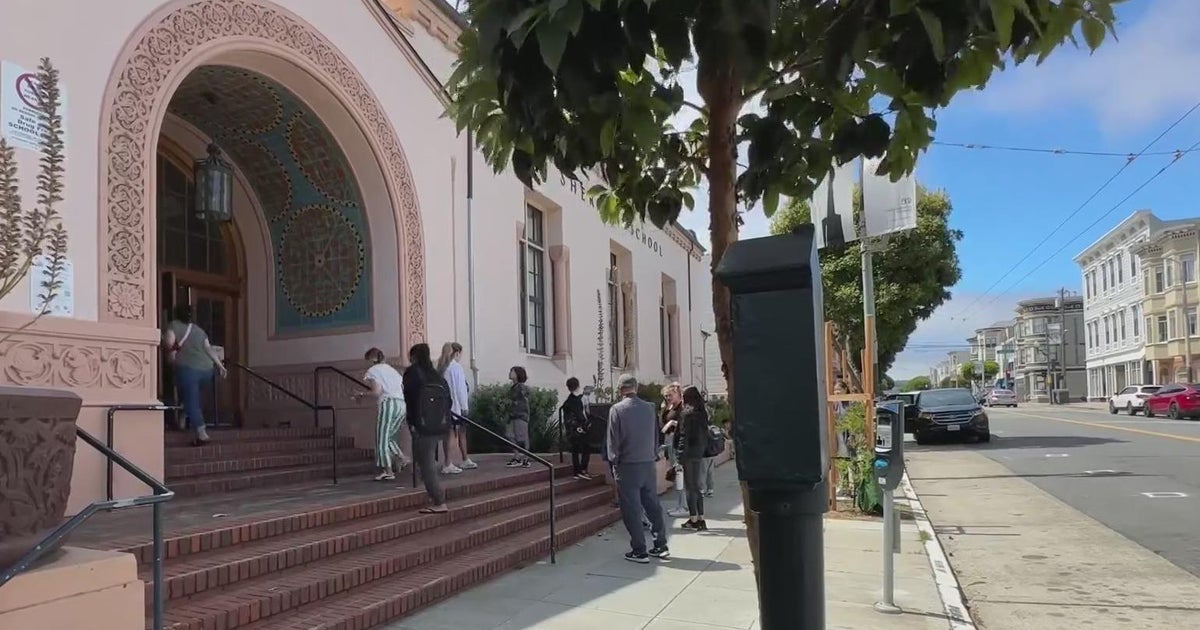Process to recycle plastics indefinitely being developed at UC Berkeley
A new process to recycle existing plastics indefinitely and reduce the flood of plastics into landfills is being developed by scientists at the University of California, Berkeley.
From sandwich bags and microwaveable containers to shampoo bottles and chip bags, plastics are durable, low-cost and lightweight.
But plastic waste is also tough and costly to recycle. The recycled plastic is often low quality and has to be mixed with new plastics manufactured with petroleum products.
In addition, each time recycled plastic is processed the quality of the plastic degrades and eventually ends up in landfills.
Every day, California dumps about 15,000 tons of plastic into landfills, according to CalRecycle. That's enough plastic to fill 290 Olympic-size swimming pools, or enough plastic waste to cover the entire UC Berkeley campus three feet deep - every single day.
For Cal undergrads Madhuri Suresh and Manas Khatore, these throwaway plastics are a huge problem and a frustrating dilemma.
"They're not really biodegradable and it takes like millions and millions of years for things to break down and stuff like that," explained Khatore.
"It is pretty hard, and it is more convenient to use plastic water bottles, unfortunately," added Suresh.
Now, scientists at Cal and Lawrence Berkeley National Laboratory have discovered a novel approach to tackle hard-to-recycle products. UC professor Dr. John Hartwig and grad student R.J. Conk are part of the team.
"We take this plastic that's a solid, and we do chemical reactions on it. And we turn into a gas," said Hartwig.
"The chemistry that we're able to do with waste plastic definitely opens up a new path for recycling," said Conk.
They've developed a catalytic process that can vaporize the two most common types of plastic waste: polyethylene which is the kind of plastic that's found in most single-use plastic bags, and polypropylene, used in hard plastics from microwavable dishes to luggage. Polyethylene and polypropylene plastics are.
The new process breaks down these plastics, also referred to as polyolefins, into their basic molecular building blocks and allows them to be turned into valuable new products. The process also works with mixed plastics which are notoriously hard to recycle.
Details of the research are in a new report published in the peer-reviewed journal Science.
"I was quite happy that we were able to throw polypropylene into the reactor and it worked for the first time," said Conk.
The process, if scaled up, could help create the much sought-after circular economy for many throwaway plastics.
The catalysts are key, but one big hurdle was finding catalysts that are cheap, plentiful on the planet, and recyclable.
Conk found them in sodium and tungsten.
"I was certainly excited and surprised when RJ came and presented to me that he had overcome those hurdles and we had actually developed a process to be able to do this," recounted Hartwig.
Unlike some chemical recycling, this process uses less energy, produces no methane gas, and if commercialized, will reduce the need to make new plastics from fossil fuel - the primary cause of climate change.
"I think climate change is one of the biggest, if not biggest concern for our generation," said Khatore.
At UC Berkeley's Sproul Plaza, Khatore and Suresh were intrigued with the recycling discovery, but both wanted to know if it would work in the real world.
"If you put it in the recycling bin it's actually getting recycled and not just going straight to landfill," said Khatore.
Until then, the goal for these students is to reduce, reuse, and compost. Khatore and Suresh are among those who belong to UC Berkeley's Indian Student Association and the South Indian Society. At their upcoming Onam event - which is a traditional harvest festival - they plan to only use compostable materials.
"That's a bit of how we're staying conscious at UC Berkeley," noted Suresh.



